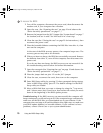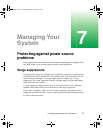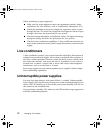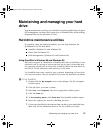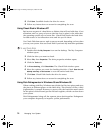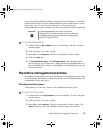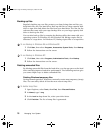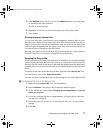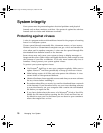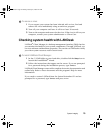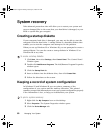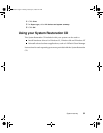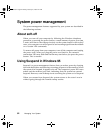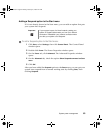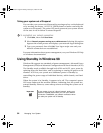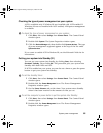
78 Managing Your System
System integrity
Your system must be protected against electrical problems and physical
hazards such as heat, moisture, and dust. Also protect it against less obvious
hazards such as viruses and hardware overloads.
Protecting against viruses
A virus is a program written with malicious intent for the purpose of creating
havoc in a computer system.
Viruses spread through executable files, document macros, or boot sectors.
Diskettes used in a contaminated computer can get a virus and transfer the
virus when used in another computer. A virus can also spread through files
downloaded from bulletin boards or the Internet.
Some viruses may only cause your system to beep or display messages or
images on the screen. Other viruses are highly destructive, and corrupt or erase
the contents of your files or diskettes. To be safe, never assume any virus is
harmless. Always protect your system against viruses.
To protect your system against viruses:
Use Norton’s
®
AntiVirus to scan your computer regularly. Make sure to
update Norton’s
®
AntiVirus periodically to keep up with new viruses.
Make backup copies of all files and write-protect the diskettes. A virus
cannot infect a write-protected diskette.
Obtain all software from reputable sources and always scan new software
for any viruses before installing it.
Be cautious about files you receive in e-mail or download from a network
or the Internet. If you download a file, use your virus checking software
to scan the directory on your computer that contains the downloaded
file before you open the file.
If you have doubts about the source of a Microsoft
®
Word or Excel file,
disable the file macros before opening the file. Word and Excel are set
by default to warn you if a document you are about to open contains a
macro that might have a virus.
05960.book Page 78 Monday, February 21, 2000 2:47 PM



